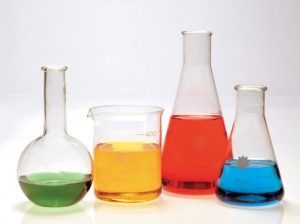 Water quality is vital for health and wellbeing, but one form of water contamination that is particularly common is coliform bacteria. Unfortunately, coliform bacteria contamination can occur without creating any change to the odor and taste of the water. This is why coliform bacteria testing is crucial if you have a private water well.
Water quality is vital for health and wellbeing, but one form of water contamination that is particularly common is coliform bacteria. Unfortunately, coliform bacteria contamination can occur without creating any change to the odor and taste of the water. This is why coliform bacteria testing is crucial if you have a private water well.
The Coliform Bacteria Basics:
Generally speaking, there are two types of coliform bacteria found in well water; total coliform or E.coli (fecal coliform.) Total coliform is naturally occurring in the environment. It is found in the soil and in water that has passed through affected soil. While the presence of total coliform does not imply a contaminated resource, it can indicate that a more serious form of harmful bacteria may be present.
Fecal coliform is in the group of total coliforms, but they are specifically present in the gut and feces or warm blooded animals. This means that fecal coliform provides a more accurate indication that human or animal waste is present compared to total coliforms.
E.coli (Escherichia coli) is a major fecal coliform species and it provides the best indicator of fecal pollution. It can also provide an indication of the possible presence of pathogens.
While most coliform bacteria do not cause diseases, there are some strains of E.coli, which can cause serious illness.
Testing for Coliform Bacteria:
Health authorities recommend coliform bacteria testing in a number of scenarios:
- Once per year on all private residential water wells
- After recent work has been performed on the well
- After new well construction
- If you see any indication or suspect contamination may have occurred, such as if there was flooding.
This type of testing provides the only reliable way to check if your water is safe to drink. If there are disease causing organisms in your water, they may not alter the smell, taste or look of the water. Since there is a large number of possible pathogens, it is not practical to test for each and every one in water samples. Fortunately, coliform bacteria testing provides indirect evidence of the presence of pathogens. A total coliform count will provide a general indication of water sanitary conditions.
What Should You Do If Tests Confirm Coliform Bacteria in Your Well?
If fecal coliform or E.coli is detected in your drinking water supplies, you will need to perform an emergency chlorination routine. This can last between two and five days. During this time, it is important that you vigorously boil all cooking and drinking water for at least one minute before you use it.
You should also continue testing your water as if the chlorine demand changes or there are issues with the chlorine residual, the water may become unsafe again. It is also important that you investigate to identify the source of the contamination to prevent recontamination of the well.
If you have concerns about coliform bacteria in your water supply, be sure to speak to a water treatment professional. An experienced water treatment technician can not only test your water for the presence of coliform bacteria but guide you through treatment options.
